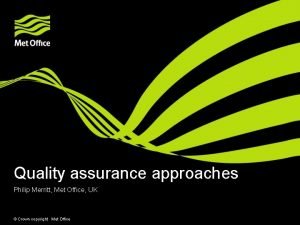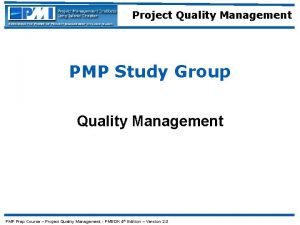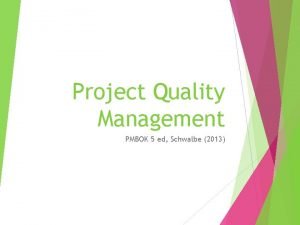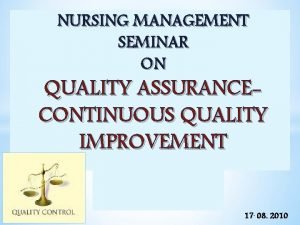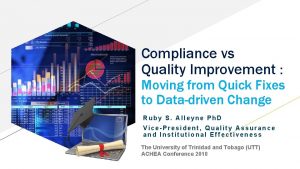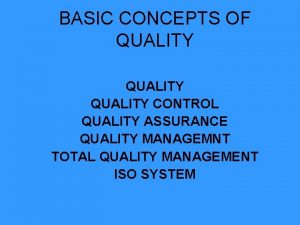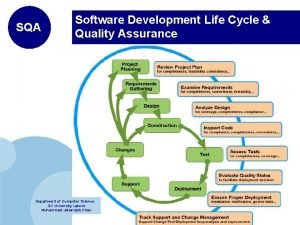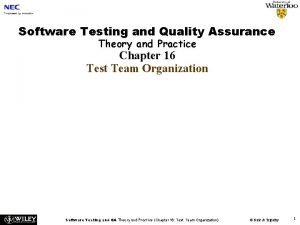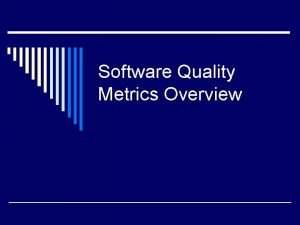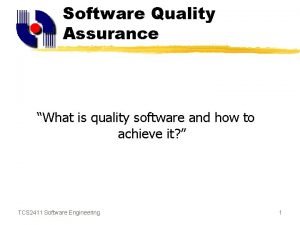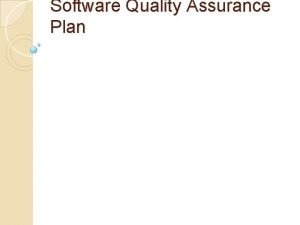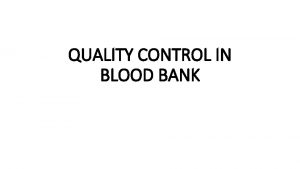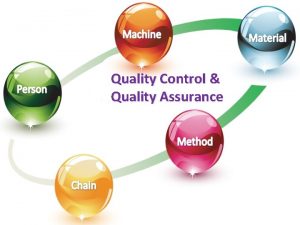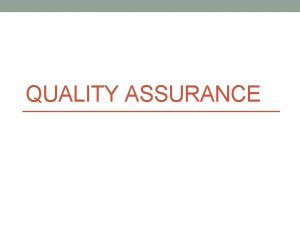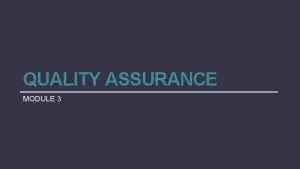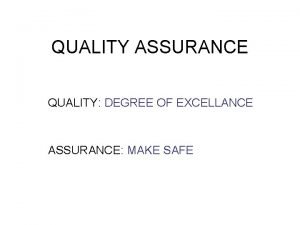Quality assurance approaches Philip Merritt Met Office UK












- Slides: 12

Quality assurance approaches Philip Merritt, Met Office, UK © Crown copyright Met Office

Aims To understand the different approaches we have to quality assurance when assessing competence © Crown copyright Met Office

Objectives By the end of this session you should be able to: • Identify the right people to be involved with quality assurance processes • Know different ways evidence can be standardised © Crown copyright Met Office

Why is it important? • If there is no formal approach to consistency then there may be differing levels to what assessors are looking for or what happens over time Your hired © Crown copyright Met Office Your fired

Why is it important? • Therefore we need to find a way that ensures consistency between assessments • This means consistency in different forms • over time • locations • people • Any pre-existing documentation setting out what is expected from the standards will help in defining required levels and expectations © Crown copyright Met Office

What came first. . . © Crown copyright Met Office

Who are our subject matter experts? • Those with suitable qualifications in this subject • Those with suitable experience in this subject • A range of people across the subject • Constantly review this © Crown copyright Met Office

Who are our assessors? • In many ways similar to the subject matter experts • Can be those in certain job roles – team leaders, trainers, managers • Need to have currency in the subject • Need to have the expertise but also skilled in areas like feedback © Crown copyright Met Office

How can we standardise assessments? Standardisation meetings • If several people are assessing within your organisation then have occasional meetings • The assessors look at pieces of evidence and blind mark them • Try to get agreement over what is deemed as sufficient evidence • See if the assessments could have been completed in a more thorough way or in a different style © Crown copyright Met Office

How can we standardise assessments? Internal Verification • Identify someone who is the lead assessor or internal verifier • This person (or persons for larger organisations) can then check consistency • They can organise and lead standardisation meetings • They can check a sample of work of other assessors to ensure standards © Crown copyright Met Office

Improving the process • The standardised material should be formally documented as part of QMS • Continuing standardisation and internal verification should help to ensure these have been implemented • If not, then more formal action should take place to help raise standards and deliver best practice • Always reflect on are we doing this in the most efficient and practical way © Crown copyright Met Office

So hopefully. . • If we follow these processes we will see this Your hired © Crown copyright Met Office Your hired
 Philip merritt
Philip merritt Perform quality assurance
Perform quality assurance Plan quality management pmp
Plan quality management pmp Pmbok quality assurance vs quality control
Pmbok quality assurance vs quality control Quality assurance model in nursing
Quality assurance model in nursing Quality improvement vs quality assurance
Quality improvement vs quality assurance Basic concepts of quality assurance
Basic concepts of quality assurance Sqa life cycle
Sqa life cycle Software testing and quality assurance theory and practice
Software testing and quality assurance theory and practice Classification of software metrics
Classification of software metrics Iso 9001 software quality assurance
Iso 9001 software quality assurance Plan de software quality assurance
Plan de software quality assurance Quality control of blood bank
Quality control of blood bank
